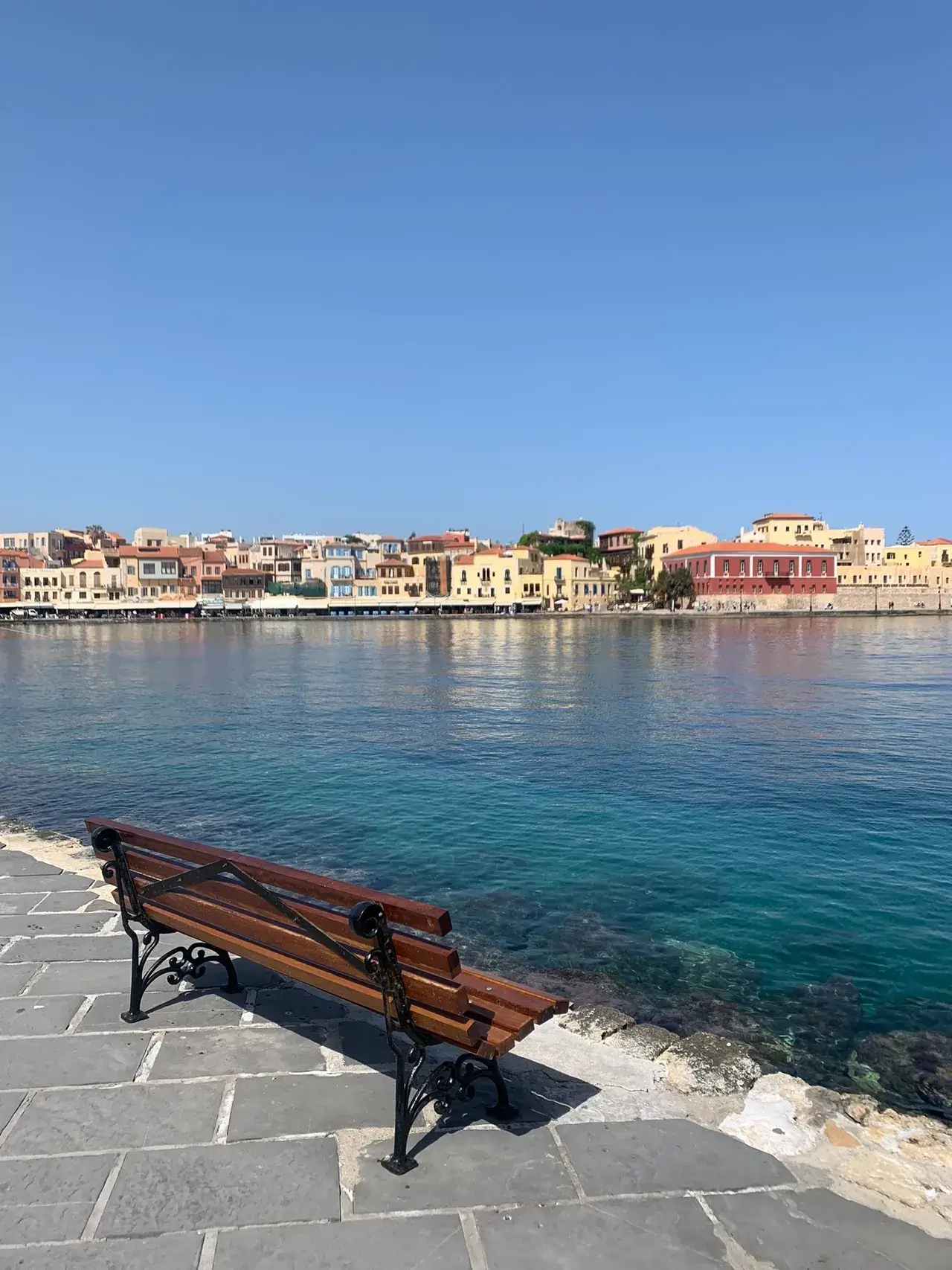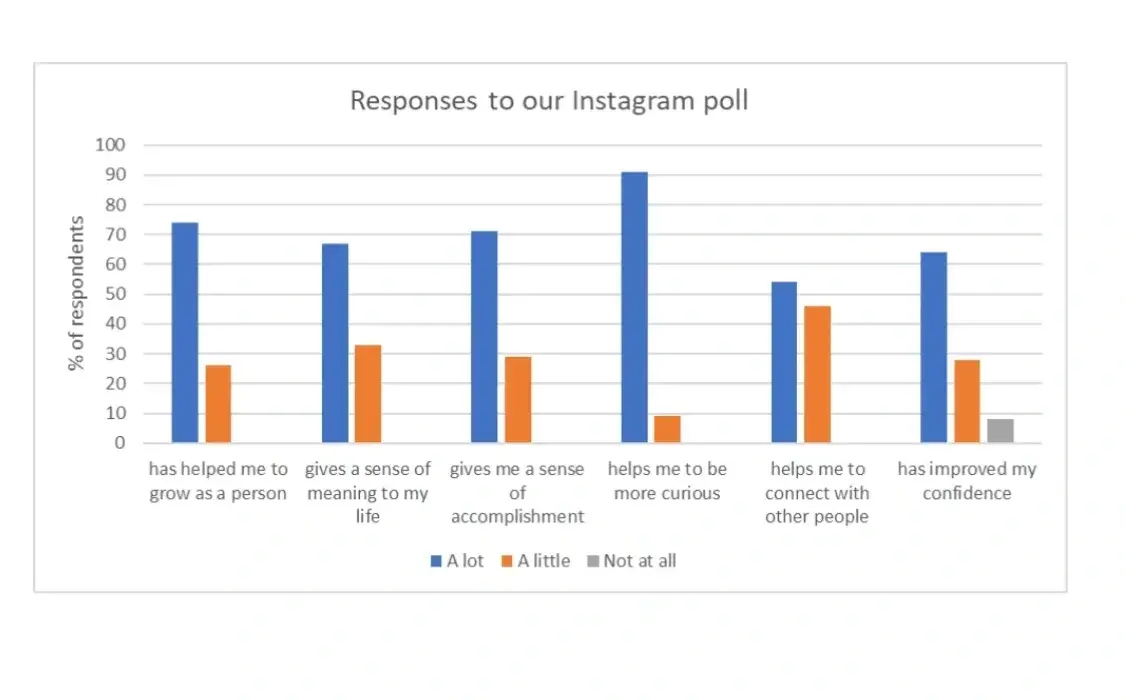What are the psychological benefits of travel?

Chania, Crete, Greece
Dr Charlotte Russell, Clinical Psychologist
Travel does not just provide ‘feel good’ experiences. Sure, sitting on a sun lounger and drinking a cocktail is nice, but these kinds of pleasures are short lived. Sometimes this is just what we need, and that’s totally ok. However, under the important question is, can travel really help with our psychological well-being in a meaningful way?
Under the right circumstances, travel can provide new experiences, can challenge us, and can allow us to experience different ways of seeing the world. These experiences may help with our personal growth, provide connection and meaning, and a sense of accomplishment. We know that connection, meaning and accomplishment are important in helping us to thrive (Seligman, 2018).
Travel also provides physical distance and time away from our day to day lives and challenges. This may afford opportunities for restoration, and to enhance our curiosity, creativity and well-being.
The distance travel creates can also enable us to reflect on our current life situation and our values . This may help us to live more in line with our values, which in itself is associated with increased well-being (Grégoire et al., 2021).
Given all this, it seems plausible that travel can provide important psychological benefits. But what scientific research exists to back this up? Next we’ll look at the evidence exploring this question.
Research evidence
There is some evidence that travel can help with our well-being. This includes a systematic review by Garcês and colleagues (2018) which identified a number of studies that had shown positive associations between tourism and well-being. As with many systematic reviews, it was difficult to make strong conclusions due to differences between studies. However the results are encouraging.
Two more recent studies looked at travel and well-being in older people. An interview study by Patterson et al. (2021) found that participants believed that travel was and important way to maintain their interest in life and their health as they grew older. In line with this, a larger study in Belgium found that older people who travelled regularly scored higher on measures of well-being than those who didn’t travel (Melon et al., 2018). The impressive part of these findings is that this effect could still be shown after adjusting for socioeconomic status, health, and physical and social activity. This suggests that travel is the factor that had a positive impact on well-being.
Taken together, these studies suggest that improved well-being is one of the benefits of travelling. However the research is far from conclusive.
What’s missing from the evidence?
A lot! The limited evidence that does exist focuses on well-being as an outcome measure. As such we cannot really answer the question of whether travel can help with our personal growth, curiosity, creativity and whether it can help us to live in line with our values.
We also do not know what specifically about travel might help. Might an all-inclusive holiday be as beneficial as a tour around a country that allows experiencing a new culture in depth? My strong suspicion as a psychologist would be absolutely not, but we don’t have any evidence to confirm this.
There are other important questions we can’t currently answer: Are there particular benefits of solo travel? Can active travel be especially good for us? I would suspect so on both counts, but really the evidence lacking to answer these questions.
The reason for the lack of research is really about the time and cost of carrying out such studies, and the issue of who would fund it. The tourism sector is unlikely to; most people wouldn’t question whether there is evidence to support the claim that travel helps with our well-being. For many of us, this seems plausibly true, and so there is no impetus for the tourism industry to fund research actually measuring this.
What do our readers think?
Given the small amount of research in this area, I ran an Instagram poll of our community to get their thoughts on the benefits of travelling. This is a poll and is not reliable evidence; we are a skewed sample of travel lovers and these are our opinions and not scientific evidence. However it is interesting to hear the thoughts of other travel lovers on this subject.
Twenty-four people responded. Sixty-one percent of our sample thought that travel ‘always’ helps with their overall well-being, and a further 35% felt that travel helped with their well-being most of the time.
Participants were also asked to indicate how much they believed travel benefited them on a number of different dimensions; personal growth, meaning, accomplishment, curiosity, connection and confidence. Their responses are shown in the chart below:

The most common benefit reported by our community was that travel “helps me to be more curious”. A whopping 91% indicated that they believed travel helps ‘a lot’ with their curiosity and a further 9% felt that travel helps ‘a little’ with this.
The second most common reported benefit was that “travel has helped me to grow as a person” with 74% believing that travel helps ‘a lot’ with personal growth. This was closely followed by travel providing a sense of accomplishment (71%) and meaning (67%).
Responses were more mixed when it came the benefits of travel for connecting with other people (54%) and improving confidence (64%). This may suggest that the relationship between travel and these dimensions is more nuanced. For example, the benefits of connecting with other people may depend heavily on the type of trip we choose, and whether we already have good connections in our day to day life. Likewise, if we are already fairly confident in ourselves, travel may not provide us with much of a benefit in this area.
So, how can I maximise the psychological benefits of travel?
Given the lack of research evidence in this area, it Is really difficult to make strong conclusions. However, our poll suggests that our readers believe that travel helps with their well-being, curiosity, personal growth and sense of accomplishment.
To get the most of out of our travel experiences, my advice would be to use travel as a tool for each of these important benefits. Think about how you can use your trip to be curious, to keep yourself active and interested. Push yourself out of your comfort zone and make it your mission to experience and appreciate new foods, places and experiences in on your trip. Think about what is going to help you to feel satisfied and provide a sense of accomplishment; trying a new activity, making small talk with a local, climbing a mountain, navigating the metro system on your own. Travel provides us with lots of opportunities to achieve these important psychological benefits. We just need to be purposeful in how we travel.
References
Garcês, S., Pocinho, M., Jesus, S. N., & Rieber, M. S. (2018). Positive psychology & tourism: a systematic literature review. Tourism & Management Studies, 14(3), 41-51.
Grégoire, S., Doucerain, M., Morin, L., & Finkelstein-Fox, L. (2021). The relationship between value-based actions, psychological distress and well-being: A multilevel diary study. Journal of Contextual Behavioral Science, 20, 79-88.
Mélon, M., Agrigoroaei, S., Diekmann, A., & Luminet, O. (2018). The holiday-related predictors of wellbeing in seniors. Journal of Policy Research in Tourism, Leisure and Events, 10 (3), 221-240.
Patterson, I., Balderas-Cejudo, A., & Pegg, S. (2021). Tourism preferences of seniors and their impact on healthy ageing. Anatolia, 32(4), 553-564.
Seligman, M. (2018). PERMA and the building blocks of well-being. The Journal of Positive Psychology, 13(4), 333-335.
